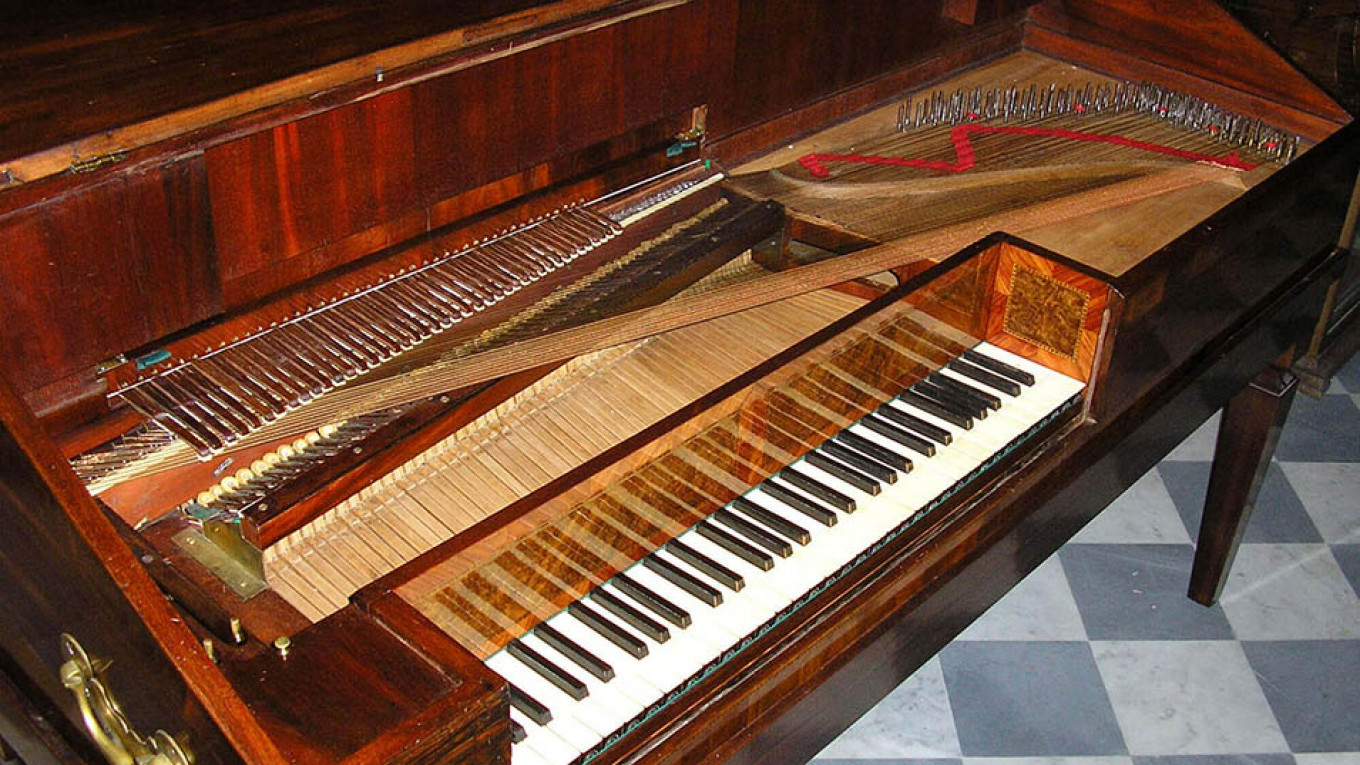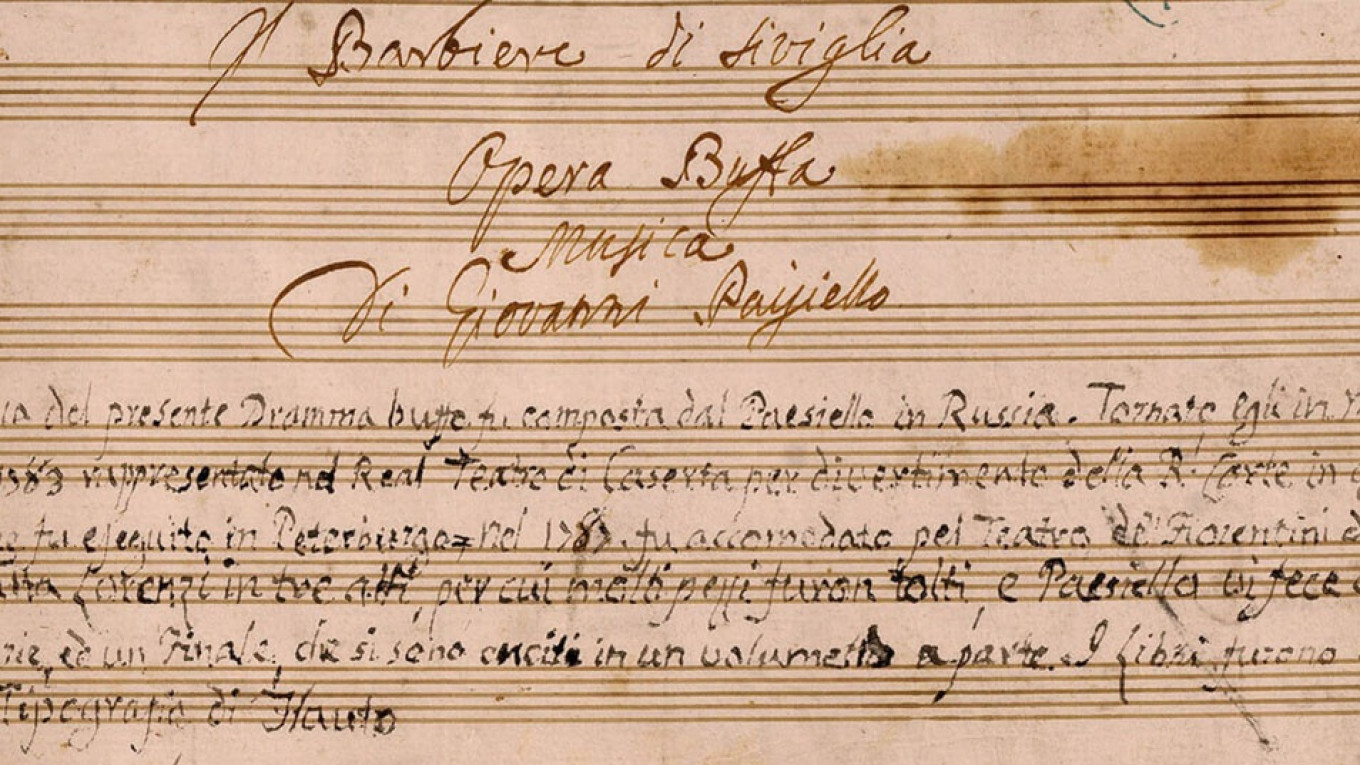This year the St. Petersburg Cultural Forum is celebrating a bit of ancient cultural history.
After more than two centuries, the Neapolitan Music School is once again the bridge between Italy and Russia thanks to the musical project “Enchanting Movement. Paisiello and Cimarosa at the Court of Catherine II.”
Naples and the world
The project was conceived by Marc Innaro, Italian Service Broadcasting’s Moscow Bureau Chief, in 2002 when he had a conversation with the musicologist Roberto De Simone. De Simone told him that the San Pietro a Majella Music Conservatory, which he managed between 1995 and 2000, had two square pianos that had been presented to the renowned Neapolitan musicians and composers Giovanni Paisiello and Domenico Cimarosa by Catherine II.
“It was an extraordinary tale that had to be told,” Marc Innaro told The Moscow Times in an interview. And so the event, “Enchanting Movement,” was born. It would bring together the return trip of the pianos to St Petersburg ̶ albeit temporarily ̶ and tell about the success of the Neapolitan Music School throughout Europe, but especially at the Russian court.
The project describes the special relationship that brought Giovanni Paisiello and Domenico Cimarosa to the court of Catherine II in the 18th century and then contributed to the explosion of a veritable “legend of Naples” in the cultural and aesthetic imagination in Europe.

Concerts in Italy and Russia
The highlight of the project were concerts of music by Paisiello, Cimarosa and other Italian composers performed on the magnificent square pianos in Italy and Russia.
There were two previews in Italy at the Royal Palace in Caserta and the Music Conservatory San Pietro a Majella in Naples before the sold-out concert on Nov. 15 at the Hermitage Theatre. The Severnaja Sinfonia Orchestra, directed by the Italian Maestro Fabio Mastrangelo, who has been living and working in Russia for many years, brought a perfect mix of Russian and Italian tenors and musicians together for this unique occasion.
The concert in St Petersburg was divided into two parts: in the first, some of the theatrical works Paisiello and Cimarosa wrote in St Petersburg, in particular for the Hermitage Theater, were performed. The second part was dedicated to works by the two chapel masters that served as the imperial family’s music tutors, a job that left deep traces in Paisiello works.
In addition to the two square pianos, several paintings and sculptures will be on display, as well as rare scores and original manuscripts. The exhibition will run until Nov. 25. The project has created a very informative site in Russian and Italian with descriptions of the event, the exhibition and the extraordinary history of Naopolitan music in St. Petersburg.
The event was organized together with Associazione MetaMorfosi, which is overseeing the production alongside San Pietro a Majella Music Conservatory, in collaboration with the Italian Embassy in Moscow, the Italian Institute of Culture in St Petersburg and the Hermitage Museum; it was sponsored by General Invest and Banca Intesa.
Hermitage Theater. 34 Teatralnaya Naberezhnaya, St. Petersburg.
A Message from The Moscow Times:
Dear readers,
We are facing unprecedented challenges. Russia's Prosecutor General's Office has designated The Moscow Times as an "undesirable" organization, criminalizing our work and putting our staff at risk of prosecution. This follows our earlier unjust labeling as a "foreign agent."
These actions are direct attempts to silence independent journalism in Russia. The authorities claim our work "discredits the decisions of the Russian leadership." We see things differently: we strive to provide accurate, unbiased reporting on Russia.
We, the journalists of The Moscow Times, refuse to be silenced. But to continue our work, we need your help.
Your support, no matter how small, makes a world of difference. If you can, please support us monthly starting from just $2. It's quick to set up, and every contribution makes a significant impact.
By supporting The Moscow Times, you're defending open, independent journalism in the face of repression. Thank you for standing with us.
Remind me later.






